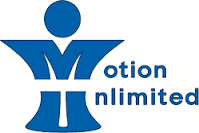Which Companies are Eligible?
All companies conducting qualifying SR&ED projects may apply to receive government reimbursement through the program. This includes private and public corporations, proprietorships, trusts, partnerships, and foreign-owned companies, provided they are located in Canada. In most instances, companies that are engaged in some form of manufacturing, fabricating, or custom design processes are usually the best candidates for qualifying projects. However, many do qualify, and all too often eligible companies wrongly believe their projects are unsuitable. Unsure? We can let you know.
Which Project Qualify?
The most commercially associated aspect of the program is bundled under the heading “experimental development.” Experimental development is what the majority of businesses conduct, and therefore represents the greatest number of qualifying projects. The Income Tax Act defines experimental development as: “work undertaken for the purpose of achieving technological advancement for the purpose of creating new, or improving existing, materials, devices, products, or processes.”
If a project meets the work criteria discussed above, it then has to fulfill the following three requirements to be qualified:
- Technological uncertainty
- Technological advancement
- Technical content.
This means if the path to ones objective is unknown, if ones experimentation leads to knowledge gained, and if technology is involved, you very likely have a project that qualifies.
Does the Project Need to be Successful?
Whether or not one has succeeded in achieving a development objective is irrelevant in determining claim eligibility. All that is required is an attempt to achieve technological objective, regardless of the project’s success.

